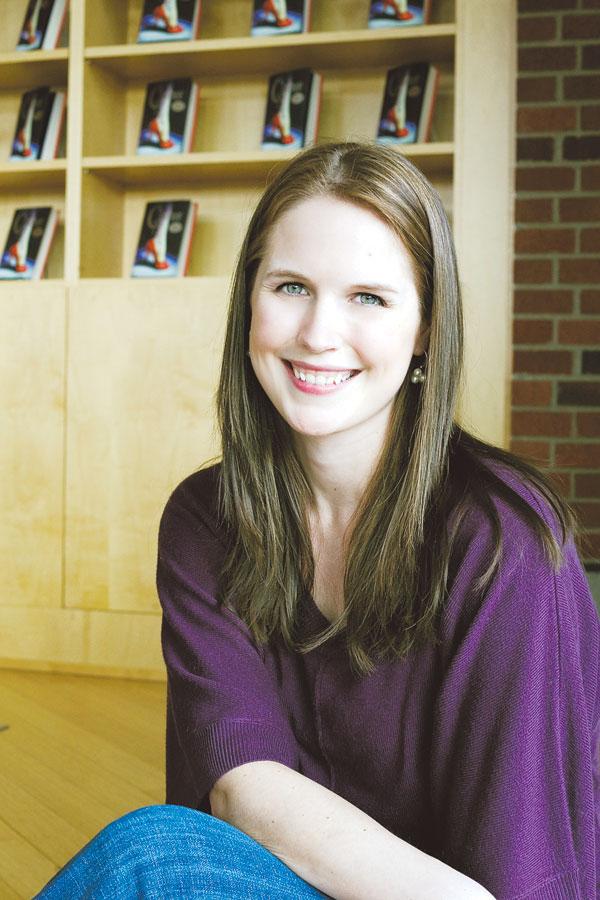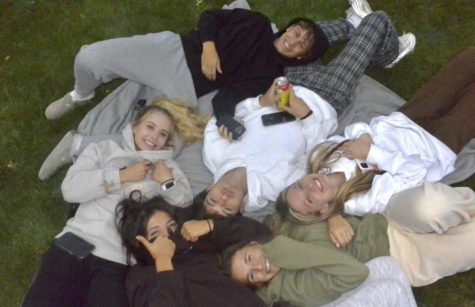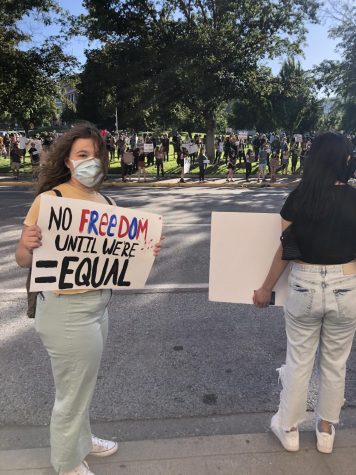Washington author comes to Wenatchee Public Library
The same story is not told the same way every time and perhaps no one knows this better than Washington author Marissa Meyers. Retelling classical fairy tales with a twist, Meyers has published three novels in The Lunar Chronicles with the fourth one, WINTER, due next year. But on April 30, she will be telling her own story free of charge at The Wenatchee Public Library at 7 p.m., covering everything from growing up in Tacoma to publishing CRESS in February 2014. Here, The Apple Leaf gives readers a preview of the tale to come.
So I heard you are coming to our local library on April 30. What will you be talking about?
I’ll be talking about how I came to be a published writer — starting with my experience writing fanfiction for the popular anime “Sailor Moon” when I was a teenager, to my introduction to National Novel Writing Month (or NaNoWriMo), how I got the idea for CINDER and The Lunar Chronicles, my first novels, and how I wrote the first draft in an attempt to win a walk-on role in Star Trek. I’ll wrap it all up with a discussion on some slightly-gory, pre-Disney fairy tales.
Could you tell me a little bit about the books you have written and ones coming in the future?
CINDER, SCARLET, and CRESS are the first three books of The Lunar Chronicles, which will conclude with Book Four: WINTER next year. Each book in the series retells a popular fairy tale, but with a science-fiction twist. CINDER (Cinderella) is a teenage girl who is part-human and part-machine, also called a cyborg. Unfortunately, in this futuristic world cyborgs are considered second-class citizens, so this causes some trouble for her when she begins to fall in love with a prince who isn’t aware that she’s cyborg. SCARLET (Little Red Riding Hood) is trying to track down her grandmother, a retired military pilot who has gone missing, all with the help of a city streetfighter who goes by “Wolf.” CRESS (Rapunzel) is a talented computer hacker who has been imprisoned in a satellite orbiting Earth for the last seven years of her life and is desperately trying to find a way to escape.
As the series progresses, the stories intertwine and the characters all band together in an effort to overthrow a wicked queen who is set on ruling planet Earth.
I’ve read your bio on your website, and I saw you first were an editor, freelance typesetter, and then a proofreader. What made you decide to switch roles and write a book? Did you write it in between these jobs or did you get a book deal prior?
My ultimate goal was always to be a writer — that was my dream from the time that I was a little kid. When I went to college, I got my degree in creative writing, and I’ve been writing and working on novels since I was a teenager. However, I knew that writing can be a tough career to break into, so I minored in publishing (and later obtained a master’s degree), which allowed me to work as an editor, typesetter, and proofreader while I was striving toward becoming a writer. It could be really difficult to balance a full-time job and writing, and I would often have to squeeze writing into any spare minute I had, but I was always optimistic that someday I could become a published writer.
It sounds like you enjoy writing fantasy novels. Why is this so, and have you ever thought about writing a different genre?
I’ve had a soft spot in my heart for fantasy and sci-fi since I was a kid and fell in love with Star Wars and The Lord of the Rings, among other great fantasy stories. I’ve always been drawn to the magical and the fantastical. However, I tend to read widely and I have many ideas that go beyond this genre — including historical fiction, contemporary romance, paranormal, and more. So I would certainly branch out into other genres if the right idea came to me.
Writing a novel seems like an exciting yet daunting task. How did you take it on day in and day out?
It is a daunting task! I started out writing short stories (mostly fanfiction), but as my ideas became more and more complex, the stories became longer and longer, and before I knew it I was writing novel-length works. It’s a process, though, and can’t all be tackled at once.
How long did it take you to write your books?
CINDER took me just under two years to write, and I went through four or five revision rounds followed by two or three editing and polishing rounds before I felt it was ready. Each round I tend to focus on one or two major elements: the plot in the first couple of rounds, then character arcs, then world-building and setting details, then themes and symbolism, then punctuation and vocabulary. There’s no way that I could hold it all in my head at once, but by focusing on just one or two big-picture items at a time I find that it becomes a lot less intimidating.
How do you come up with novel ideas?
Ideas can come from anywhere at any time. I’ve been inspired by newspaper headlines, song lyrics, some strange thing seen from the corner of my eye… and the idea for a cyborg Cinderella actually came to me in a dream! You just never know.
How did you develop these ideas from the very beginning to the ending? Have some of your novels turned out completely different than you originally thought?
Once I have a concept, I let my mind wander. I daydream and collect ideas, write down little tidbits of ideas as they come to me. This could take months or even years before all these little pieces start to fit together into something that resembles a story. I’m an outline writer, so once I see the story unfolding I begin to construct my outline, figuring out the major points of the story and then connecting them in what seems like a natural progression from beginning to middle and end. From there, I write a really fast, sloppy first draft to get all the ideas down, before I start in on the long and tedious revision process. Things change a lot in revisions. By that point I’m able to more clearly see what is and isn’t working in the story and I tend to make a lot of big sweeping changes in the second draft — to the point where it’s hardly recognizable from my initial plans! But that first outline and messy draft is necessary for me to uncover the real story I want to tell.
While writing your first novel, did you ever have the fear that no one was going to read it?
Always! It seems hilarious now, but when I was first writing CINDER, the common advice given to young adult authors was to not even bother with science-fiction. They said that you absolutely cannot sell sci-fi to teenagers! (This was obviously before The Hunger Games was a smashing success.) So I was in constant fear that the general advice would prove to be correct and I was wasting my time, but I was always so in love with this idea and this story that I knew I had to at least try to get it published. I’m so glad that I didn’t listen to those naysayers way back when!





WA • May 2, 2014 at 12:51 pm
I go to see every day some web pages and blogs to read posts, however
this blog provides quality based posts.